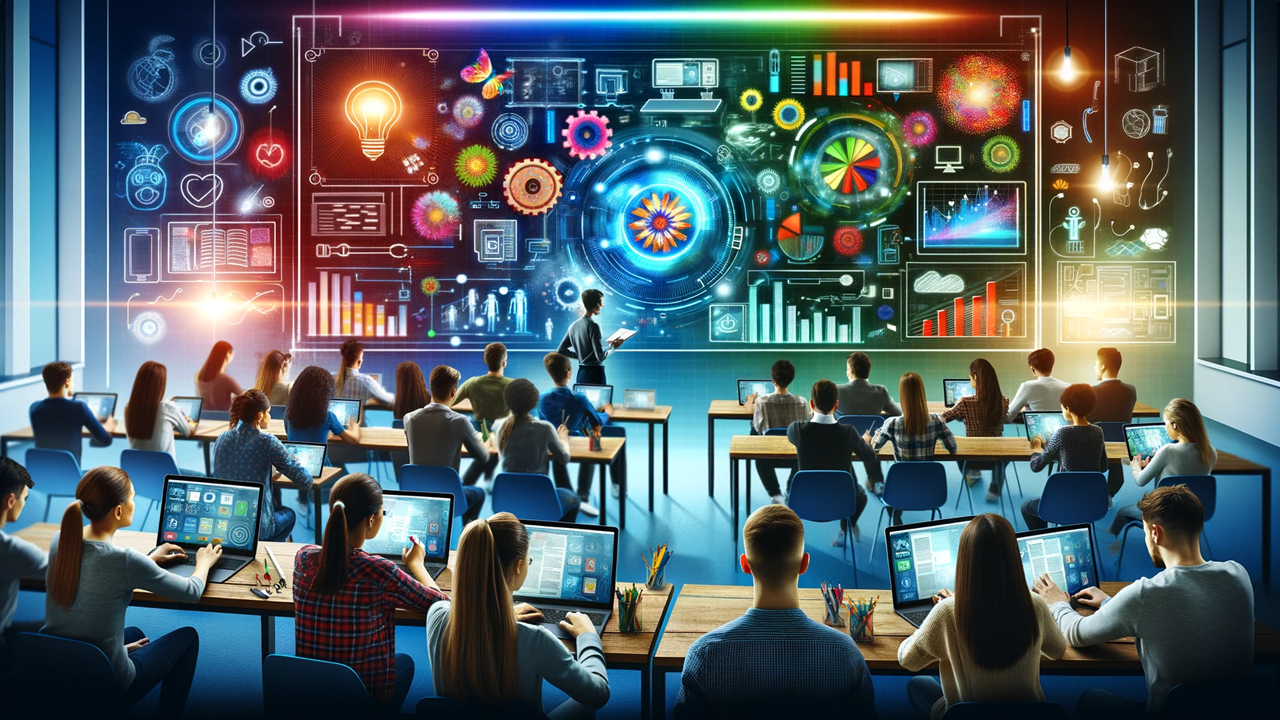Classrooms without Walls: Embracing the Digital Revolution in Education
The landscape of education is undergoing a significant transformation, with technology at its forefront. From digital classrooms to personalized learning experiences, technology is making education more accessible, interactive, and customized. Despite the challenges, the future promises an educational ecosystem that is more inclusive and tailored to individual needs, ensuring that the journey of learning is as enriching and engaging as possible.

The realm of education is witnessing a transformative phase, with technology being the catalyst of this unprecedented change. Gone are the days of chalk and talk, replaced by interactive screens and virtual reality experiences. The integration of technology in education, often referred to as Educational Technology or EdTech, is not just enhancing the learning experience but is redefining it, making education more accessible, inclusive, and personalized than ever before.
The Digital Classroom: A New Learning Horizon
The concept of the classroom has evolved significantly with the advent of technology. Digital classrooms have broken the physical barriers, enabling students from different geographical locations to participate in the same learning environment. Tools such as video conferencing, online whiteboards, and digital course materials have made remote learning a practical and effective reality. The flexibility and convenience offered by digital classrooms allow learners to balance education with other life responsibilities, catering to the needs of traditional students and lifelong learners alike.
E-Learning Platforms: Gateway to Knowledge
E-learning platforms have emerged as pivotal in democratizing education. These platforms offer a plethora of courses ranging from academic subjects to professional skill development, accessible to anyone with an internet connection. The content is not just limited to text or videos; interactive quizzes, peer discussions, and hands-on projects ensure a comprehensive learning experience. Platforms like Coursera, Udemy, and Khan Academy are some shining examples, providing quality education from reputable institutions and educators across the globe.
Personalized Learning: Catering to Individual Needs
One of the most significant advantages of technology in education is the ability to personalize the learning experience. Adaptive learning technology uses algorithms to analyze a student's performance and learning style, customizing the content accordingly. This ensures that each student can learn at their own pace, focusing on areas that require more attention and skipping through concepts they've already mastered. Personalized learning not only makes education more effective but also keeps students engaged and motivated.
Gamification of Learning: Making Education Fun
Gamification is a technique that involves incorporating game elements into non-game contexts, such as education, to enhance user engagement and motivation. By turning learning activities into games, educators can make education more fun and interactive. Leaderboards, point systems, and virtual rewards can make the learning process more exciting and competitive. This approach not only improves engagement but also helps in better retention of information and concepts.
Virtual and Augmented Reality: Immersive Learning Experiences
Virtual Reality (VR) and Augmented Reality (AR) are taking experiential learning to a whole new level. These technologies provide immersive learning experiences, making complex concepts easier to understand and retain. For instance, students can take virtual field trips to historical sites, dissect a frog in a virtual biology lab, or explore the universe in a virtual space station. These experiences are not only fascinating but also cater to different learning styles, making education more inclusive.
Challenges and Future Prospects
While the integration of technology in education offers numerous benefits, it also comes with its set of challenges. Issues such as the digital divide, data privacy, and the need for teacher training are some of the hurdles that need to be addressed. However, with continuous advancements in technology and a collective effort from educators, policymakers, and tech companies, the future of education looks promising. The focus is on creating more interactive, personalized, and accessible learning experiences, ensuring that the educational evolution through technology not only continues but accelerates.
Conclusion
The journey of educational evolution through technology is an ongoing one, with new milestones being achieved every day. As we embrace this change, it's essential to ensure that technology acts as an enabler, making education a more enriching, inclusive, and accessible journey for everyone. The future of education is not about replacing traditional methods but augmenting them with technology, creating a learning ecosystem that is dynamic, interactive, and tailored to the needs of every learner.
In a world where change is the only constant, adapting to and embracing the educational evolution through technology is not just an option but a necessity. It's a journey that we are all a part of, shaping the minds of today and creating the future of tomorrow.










